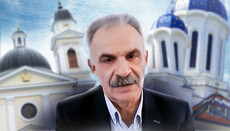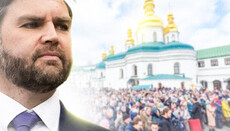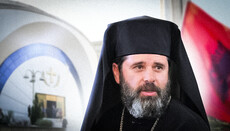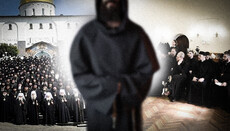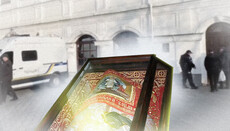Prohibition of UOC? On bills to break Ukraine from within
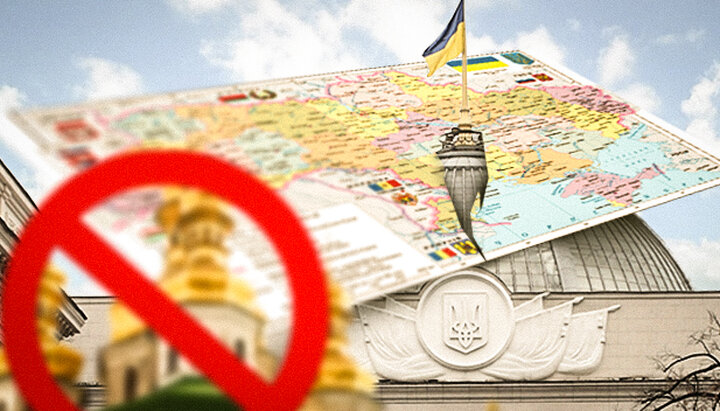
The Verkhovna Rada registered has two bills to ban the UOC. What are they written for and what can they lead to if adopted?
Hardly had a month of the war with the RF passed when individual representatives of the Ukrainian government decided to open an "internal front" – to start "military operations" against the Ukrainian Orthodox Church. On March 22, 2022, bill № 7204 “On the Prohibition of the Moscow Patriarchate in Ukraine” and on March 26, bill № 7213 on amendments to the Law of Ukraine “On Freedom of Conscience and Religious Organizations” were registered in the Verkhovna Rada. They are both aimed at destroying the UOC.
Bill № 7204
Bill № 7204 was submitted to the Verkhovna Rada by MP Oksana Savchuk, a member of the Svoboda Party and a native of Ivano-Frankivsk. She is Greek Catholic by faith and received an award from Pope Francis in 2018. Savchuk also received a church order from the hands of Sergei (Epifaniy) Dumenko.
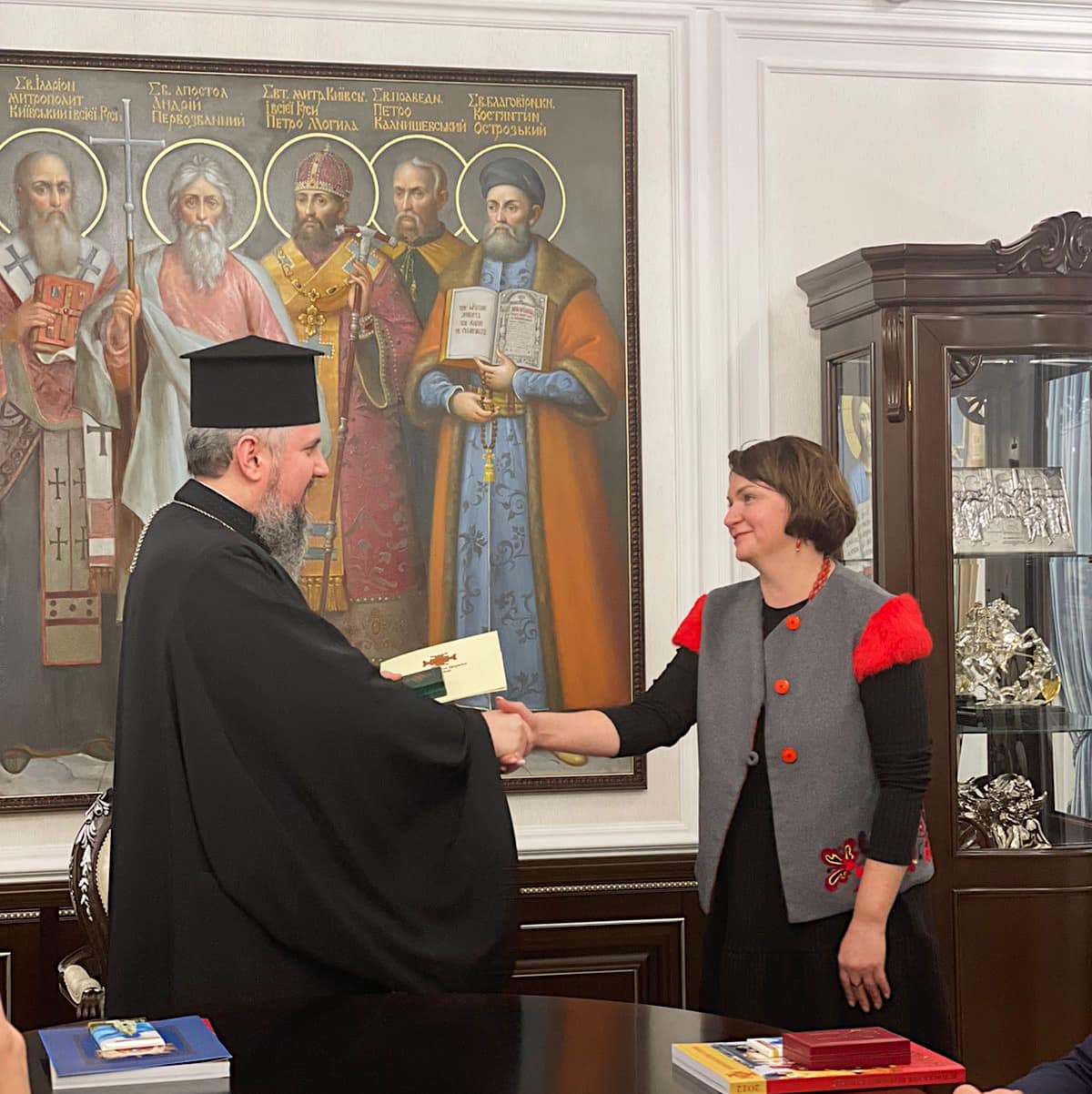
O. Savchuk's worldview is evidenced by the fact that during the discussion of bill № 2797 on the ban on the glorification of Nazism and persons who took part in the Holocaust, she said that the soldiers of Hitler's SS Division "Galicia" were heroes.
The meaning of Savchuk's bill is very simple – to ban the "Moscow Patriarchate" in Ukraine and nationalize all its property. Those communities who want to avoid nationalization are given 14 days to "change their subordination”.
The scheme for destroying the UOC according to bill № 7204 is as follows:
- A ban on the activities of the UOC is declared. Article 1: "The activities of the Moscow Patriarchate – the Russian Orthodox Church and religious organizations which are part of the Russian Orthodox Church, including the Ukrainian Orthodox Church, shall be prohibited on the territory of Ukraine.
- After that, within 2 days all the property of the governing bodies of the UOC is nationalized.
Article 1: "All church property of the highest church authorities and administration <...>, including the Kyiv Metropolis of the Ukrainian Orthodox Church, synodal institutions, diocesan administrations, shall be inventoried and nationalized within 48 hours from the date the law comes into force.”
It should be noted that it is technically impossible to do this within 48 hours, and such a short period in the bill is specified to show the voters how tough and uncompromising the initiator of the bill is in the fight against the "enemy”.
- At the same time, a countdown of 14 days begins, during which "religious communities, monasteries and educational institutions" can change their affiliation (presumably, move to the OCU or the UGCC). In this case, their property will not be taken away from them, but they will have, as they say, “to run the gauntlet”.
Article 5: "During the change of subordination of religious communities, monasteries and theological educational institutions of the Moscow Patriarchate, Ukraine shall verify information on anti-Ukrainian or any anti-state activity or collaboration with the Russian aggressor and, in case of confirmation of this information, shall bring the guilty to criminal responsibility according to the current legislation.” Given how many fakes and false accusations against the UOC appear in this regard, it can be argued that this will be a harsh crackdown on the unwanted.
- Communities, monasteries and theological schools that refuse to change their "subordination" will simply be banned, with their property confiscated.
- The Kyiv Pechersk, Pochaiv and Sviatogorsk Lavra and other temples are handed over to the state or local territorial communities. The time frame for this is not specified in the bill.
Bill № 7213
Three days later, on 26 March, a second bill on the de facto banning of the UOC was submitted to the Verkhovna Rada. It was submitted by a group of MPs, most of whom were elected from the “Holos” party. Many of them were members of the “Plast” organization and the Ukrainian Galicia Party. Interestingly, some of them, like Oksana Savchuk, are close to the OCU. For example, Solomiya Bobrovska created in the Rada an inter-faction association in support of the OCU and received a church order from Sergei Dumenko. Other authors, such as Yaroslav Yurchyshyn, also visit the head of the OCU.
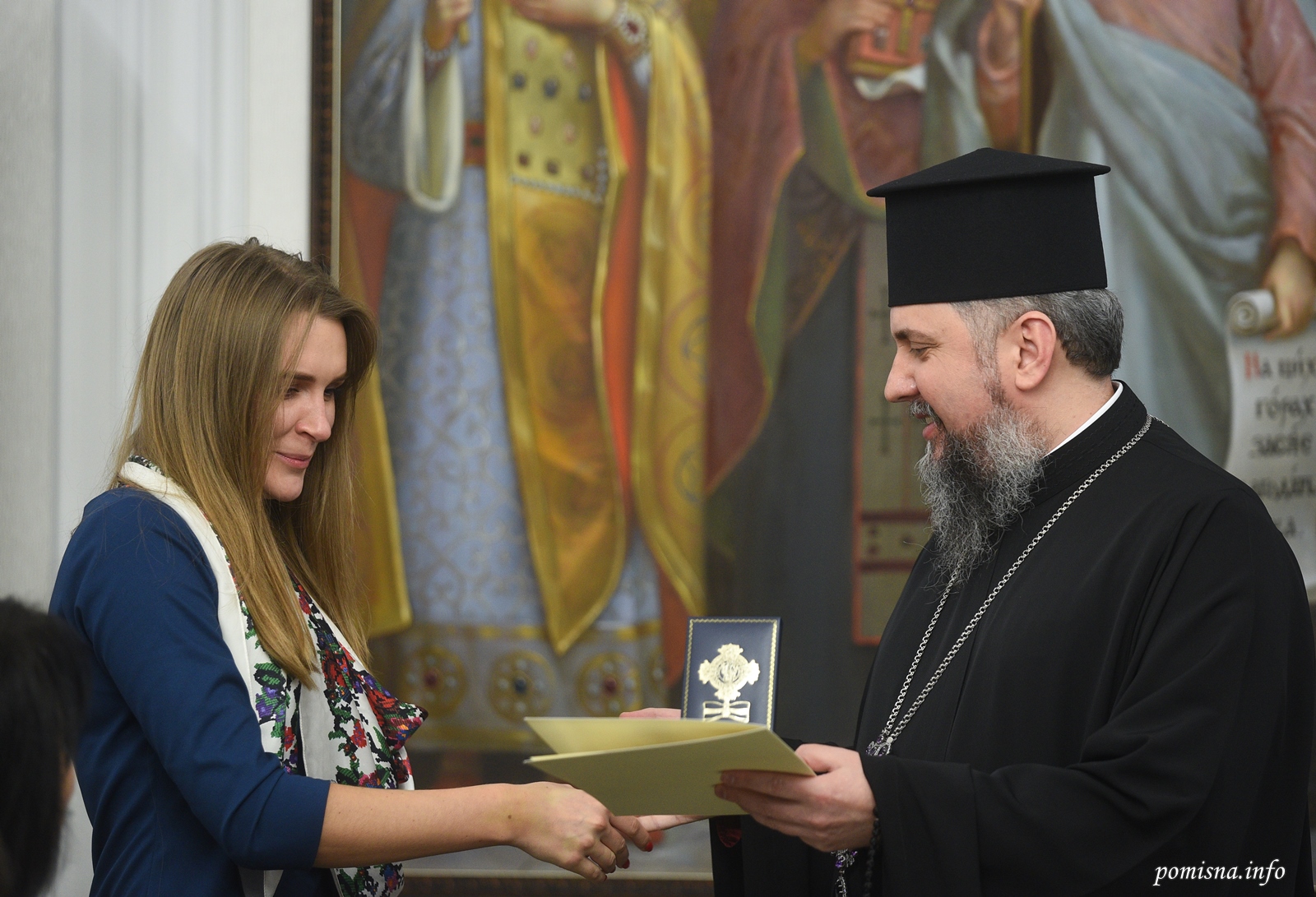
In contrast to Savchuk's draft law, bill № 7213 provides amendments and additions to the already existing law "On Freedom of Conscience and Religious Organizations", namely it must supplement Article 3 with the following paragraph:
"For the protection of public safety and order, banned are the activities of religious organizations (associations) which directly or as parts of another religious organization (association) are included in the structures (are parts) of a religious organization (association) whose governing centre (administration) is outside Ukraine in a state that is recognized by law as having committed military aggression against Ukraine and/or has temporarily occupied part of the territory of Ukraine."
This bill is more "diplomatic". It does not mention either the ROC or the UOC, does not say about the confiscation of property (although there is some hint of it), does not say that the UOC will be taken away from the Lavra, there is no requirement for the SBU to check religious communities if they change their "subordination", etc.
Bill № 7213 even contains a condition that makes the draft law, in fact, not applicable to the UOC at all. It says that the activities of religious organizations "whose governing centre (administration) is located outside Ukraine" is prohibited.
Indeed, according to the statutory documents, the governing centre of the UOC is located in Ukraine. Thus, clause 1 of the Statute of the UOC states: "The Ukrainian Orthodox Church is independent and autonomous in its administration and organization. And the Statute of the ROC contains a categorical statement that "the administration centre of the Ukrainian Orthodox Church is in Kyiv" (Ch. X. Para. 4). Based on this, the UOC does not fall under the ban. However, both the composition of the authors of the bill and the Explanatory Note to it do not allow us to conclude that bill № 7213 is actually intended not to ban the UOC but to withdraw it from the blow.
This Note, in particular, states: "The Russian Orthodox Church in Ukraine (formerly the Ukrainian Orthodox Church of the Moscow Patriarchate), actually an extensive all-Ukrainian intelligence and sabotage structure, which has worked and continues to work in Putin's favour all these years, continues its activities in Ukraine. For example, on 25 February 2022, Mikhail Pavlushenko, an archpriest of the Russian Orthodox Church in Ukraine, who helped the Russian Army, was detained in the Kyiv region near Hostomel. On 16 March 2022, Father Onufriy, a priest of the Russian Orthodox Church in Ukraine, was detained in Kyiv. A search of his house revealed that he had collaborated with the Russian special services. And such cases are repeated"
First, such cases are single, as we do not know about any other cases of this kind.
Secondly, the presence of such facts in documents of this level causes at least bewilderment. The detention of Archpriest Mikhail Pavlushenko is a complete misunderstanding since a downed Russian helicopter crashed in the field behind his home in Hostomel and the priest simply went out to see if his help was needed. The law enforcers initially mistook him for a saboteur and therefore detained him. However, after understanding the situation, they let him go home without charging him with anything. The case of the detention of a certain "Father Onufriy" (Tarasov) is a common fake because, according to the Kyiv Metropolis, "there is no hieromonk Onufriy with the secular name of Sergey Tarasov on the staff of the Ukrainian Orthodox Church".
Thus, bill № 7213 is based on just two knowingly false statements, but nevertheless, its authors claim that the UOC is an "all-Ukrainian intelligence and sabotage structure". No comment, as they say.
Previous anti-church bills
Bills № 7204 and № 7213 are by no means the first in a string of anti-church bills. We can recall Law № 2662-VIII of 20.12.2018. "On Amendments to Article 12 of the Law of Ukraine 'On Freedom of Conscience and Religious Organisations'", which states that religious organisations which are included in (are part of) a religious organisation whose governing centre is located in a country recognised by Ukraine as an aggressor country are required to change their name. In essence, this is a requirement for the UOC to change its name to "Russian Orthodox Church in Ukraine". You can read about the invalidity of this requirement in detail in the article "Why changing the UOC name cannot be accepted".
One may recall Law № 2673-VIII of 17.01.2019. "On Amendments to Certain Laws of Ukraine on the Subordination of Religious Organizations and the Procedure for State Registration of Religious Organizations with Legal Entity Status", which although does not provide such broad opportunities for church raiding as were envisaged in its original version, still allows the re-registration of UOC communities against the will of community members. Protest action against these two anti-church laws was launched by the NGO "Miriane", which prepared the texts of bills repealing the anti-church laws. It was stated that the anti-church laws not only violate the constitutional right of UOC believers to freedom of conscience but also divide Ukrainian society along religious lines.
Power and the Church
If we look at the current anti-Church bills № 7204 and № 7213, we can see that they not only divide the Ukrainian people but also contradict the efforts of the Ukrainian leadership to preserve the unity of Ukraine. For example, President Zelensky, in a video message dated 12 March 2022, said: "We must be focused. It is necessary for all of us, all Ukrainians, to continue to concentrate on the defence of our state. Work together. Without internal splits, supporting each other, all over Ukraine, from Uzhhorod to Melitopol, from Chernihiv to Mariupol, from Lviv to Kharkiv."
At the same time, the President acknowledged the merit of the UOC in helping Ukrainian citizens who found themselves in the war zone: "This day we sent another humanitarian cargo to Mariupol. I am grateful to every driver who is trying to implement this difficult mission, to the representatives of the Church, who joined the attempts to protect the humanitarian corridor to Mariupol from shelling". The humanitarian convoy to Mariupol mentioned by the President was accompanied personally by Metropolitan Luke of Zaporizhzhia and Melitopol.
The patriotic position of the UOC was also acknowledged by the Adviser to the Head of the Office of the President of Ukraine, Alexei Arestovich. During an interview with Dmytro Gordon on March 15, 2022, he said the following about His Beatitude Onuphry’s statement: "There was so much talk about his personal position but immediately, on the day when the strikes first started and everyone, very many people believed that Kyiv would fall in 24 hours, he stated his position clearly: this is aggression." But the clearest confirmation of the patriotic position of the UOC is its deeds. The UOC blesses soldiers to defend Ukraine, helps refugees, gives shelter to those who have lost their homes, sends food, clothing and medicines to the hottest spots, etc. The UOC does everything in its power to protect the country. And in return, it receives... bills to ban it.
Will the destruction of the UOC lead to "an end to the incitement of inter-faith hatred"?
Let’s hope that the bills will remain bills but if passed, they will definitely trigger an intra-Ukrainian conflict. The UOC means more than a hundred bishops, more than 12 thousand communities, almost half a thousand monasteries and millions of believers. What will happen if the Verkhovna Rada decides to ban all of this and, according to bill № 7204, take away all the property?
There is no doubt that it will cause widespread unrest within the country. We all remember the pictures of the seizures of churches in early 2019, after Poroshenko's Tomos. We remember the screams, tears, bruises and injuries of UOC worshippers. We remember the enmity and hatred among relatives and neighbours in the villages where this took place.
Now there is a war, and the degree of hatred is very different. People are angry and are looking for someone to vent their anger on. And what will happen if the nationalists have a legal reason to take churches away from the UOC? Where before everything was limited to bruises for parishioners and the clergy, now it can end up with injuries, wounds and even death. UOC priests are now being attacked, beaten and kidnapped. For example, the fate of Archimandrite Lavr (Berezovsky), who was beaten up and dragged into the woods by armed men on March 16, remains unknown. And how many such archimandrites will there be if the law on the ban of the UOC is passed? And how will the believers react when they come to "nationalise" their сhurch where they have prayed all their lives? If they come to "nationalise" Lavra?
To understand what can happen, here is an example: Boris Hrishchuk, a parishioner of the Ukrainian Orthodox Church, recorded a video in defence of the UOC, in which he said: "I make an insistent request, a very insistent request – do not touch my Church. Do not divide the people! Do not be provocateurs! My Church is Ukrainian, my priest from the temple, where I have been going since my childhood, blessed me and my little brother to take up arms and go to defend our Motherland. And dozens of priests I know personally offer daily prayers for the health of our soldiers and peace in our country <...> believe me, when we come back, when this is all over, we will not let our Church be offended. I give you my word." This was the answer of the Ukrainian soldier to the seizures of churches and attempts to ban the UOC in some localities in western Ukraine. And what could be the response of thousands of UOC parishioners, who are now fighting with arms in their hands against the invaders from the RF if the Verkhovna Rada decides to ban the UOC throughout the country? We do not claim that they will take up arms to defend their churches, but their reaction is unlikely to be indifferent.
If we turn to the preamble to bill № 7204 "On Prohibition of the Moscow Patriarchate in Ukraine", we read the following: "In order to protect the national security, sovereignty and territorial integrity of Ukraine, to prevent collaborationism, to stop inciting inter-faith enmity and destabilizing the religious environment in Ukraine, the Verkhovna Rada adopts this Law". It sounds like a mockery. What reality do the people who have written such a thing live in? Because the objective reality is the following:
- The UOC at the level of both the Holy Synod and the Primate, as well as other hierarchs, have declared their full support for the sovereignty and territorial integrity of Ukraine. Moreover, this was done in the very first days of the Russian invasion;
- UOC believers fight in the ranks of the Armed Forces and the military, and defend the national security, sovereignty, and territorial integrity of Ukraine with arms in their hands;
- there is no collaborationism on the part of representatives of the UOC.
And this means that the bills to ban the UOC are based on deliberately false grounds, and it is these very bills, and not the activities of the UOC, that lead to "incitement of interfaith enmity and destabilization of the religious environment in Ukraine”.
We can only hope that the authorities will have enough common sense to reject bills № 7204 and № 7213 as extremely harmful to the state, and even more so in wartime.
